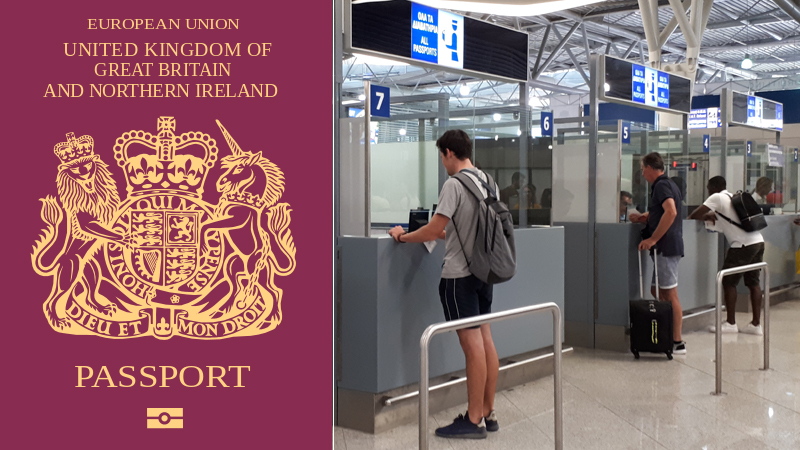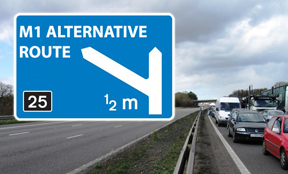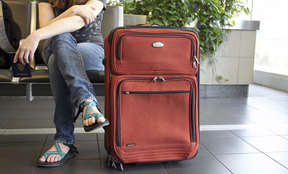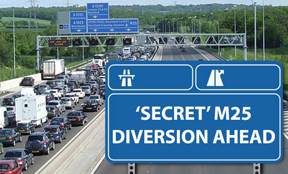
With many people suffering from medical conditions that require prescription medication, it is essential that travellers understand the rules before they arrive at the airport and try to board planes heading to their destinations.
While you will be able to carry essential medicine while flying, you will need to make sure you comply with the rules set for both your airport and airline - as these will differ depending on the combination.
This guide by travel journalist and expert Pete Barden will help you get an indication of what is required. Here we look at what the airlines and airports say about carrying medication, including liquids that exceed current 100ml limits.
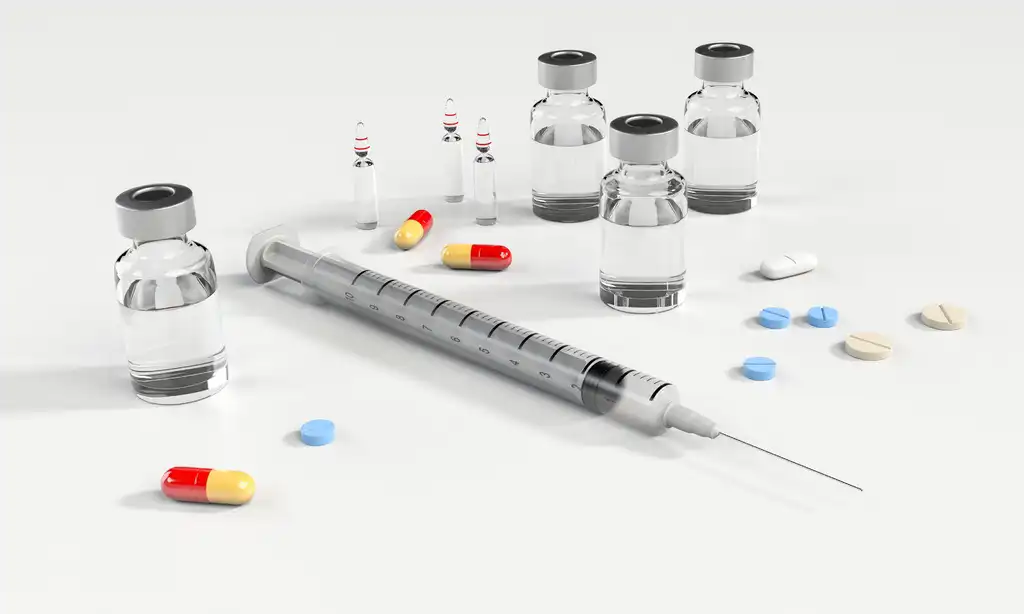 Find out if you how to carry medicines on
planes airline-by-airline and airport-by-airport (Credit: Pxhere)
Find out if you how to carry medicines on
planes airline-by-airline and airport-by-airport (Credit: Pxhere)
Have airports scrapped the 100ml rule for flights?
A handful of airports, including Edinburgh and Birmingham, have now installed new CT scanners at security. This means passengers can keep liquids of up to 2 litres inside their hand luggage, with no limit on how many 2L containers they carry.
However, most UK airports still enforce the 100ml liquid rule for now, although more are expected to introduce the scanners and 2L allowance over the summer.
What airports have scrapped the 100ml rule already?
Many UK airports are trialling the new scanners, but, as explained above, the new technology is only currently active at Edinburgh and Birmingham airports.
Here's what the airlines say for flights from airports with the 100ml restrictions still in place
Aer Lingus
Aer Lingus says medication should be packed in your carry-on baggage and not in checked luggage.
If you have liquid medicines over 100ml or syringes, the airline’s customer service says they can be carried in a cabin bag if in the original packaging and with a doctor’s note. Always check with your departure airport.
Air Canada
Air Canada says passengers should carry medication in the cabin and in the original packaging. However, medicines containing alcohol must be transported in checked luggage.
Air New Zealand
Passengers should remember to pack medications they might need during the journey in carry-on baggage, says Air Canada. It also points out that civil aviation rules require medicines to have a pharmacy printed label. For liquids in containers over 100ml, it recommends passengers carry a letter from their doctor.
British Airways
British Airways says if passengers need to take medication, including liquid medication or syringes, they should pack it in hand baggage (if possible, in its original packaging). To avoid delays at airport security, also take a prescription or supporting letter from a doctor that confirming that it is prescribed to the passenger.
easyJet
If bringing medicine on board, passengers must also provide a doctor’s certificate confirming the type of medication and what it is being used for. Passengers will also be able to bring liquid medicines larger than 100ml through security if they have a doctor’s certificate.
Subscribe for free motoring and travel news here - support independent journalism
Jet2
Jet2 says, all essential medications required for the duration of a passenger’s journey should be carried in their hand luggage. Essential liquid medication that comes in quantities over 100ml must be accompanied by a certified doctor's letter. These medicines must be in their original containers. The airline also points out that bottles and packaging may need to be opened by airport security during screening.
Jet2 also says those who need to carry syringes, needles, insulin pens, EpiPens and associated medication in the cabin, must have a letter from their doctor confirming they are required. If injections are required during the flight, they must be self-administered. It adds the passenger should ensure airport security will allow such medical equipment.
Passengers must declare they are carrying needles at check-in, airport security, and to Jet2 cabin crew when boarding the aircraft.
Ryanair
You are allowed to carry liquid medicine required for your flight. The medicine does not need to fit in the transparent bag but you should have it ready for inspection by airport security, according to Ryanair.
TUI
Passengers can take medication into the cabin for their TUI flight. However, they must bring a doctor's letter or repeat prescription – especially so if the medication is a liquid, as this will be needed at security.
Passengers can carry insulin and injection pen in hand luggage - but you'll need to declare this at check in. They will also need to show a doctor's letter or approved diabetic card.
Virgin Atlantic
Virgin says: “If you are likely to need to take medication during the flight, you should bring enough in your hand baggage to last you for the journey, plus two or three days just in case of delay or loss of baggage. The rest should be packed in your check in baggage and placed in the hold, where the temperature is kept between 4-5°C.”
It also says passengers should ensure they have a letter from their medical practitioner confirming the type of medication (including generic drug name), with prescribed doses, what the medication is being used for and any other medical items that may be needed, such as syringes or EpiPens.
The medication should be in its original packaging and labelled to clearly identify it as being prescribed for and belonging to the passenger in question.
Virgin also points out that some medication may contain ingredients that are illegal in some countries, such as codeine in some painkillers, even when prescribed by a doctor in the UK. Check with the destination’s UK embassy if you have concerns.
For liquid medication in quantities exceeding 100ml, Virgin Atlantic urges passengers to take advice from airport security ahead of travel.
Wizz Air
We recommend all passengers to bring their essentials into the cabin (such as personal hygiene items and medicines). In case you did not purchase WIZZ Priority and checked-in your hand luggage you might take out personal items and bring them into the cabin. When carrying medication in a liquid form, please check the safety regulations for carrying liquids on board. In cases where you need to carry essential medications, such as insulin, you will need to have a medical certificate with you confirming that you need the medication and present this document at the airport security if required.
Travelling to the UAE with medication
In October 2018, the United Arab Emirates Ministry of Health said that tourists and residents planning to enter the country with medication for personal use will need to obtain approval before travelling.
An electronic form needs to be completed before you travel. This form can found here.
Find your repeat prescriptions
If you need to show your repeat prescriptions in an emergency, remember this information should be included on your NHS app.
Most read travel content
Take a look at more of our top travel-related news and guides here...
-
Do I need six or three months on my passport for Spain, France and other EU countries?
-
Who can sign my passport photo... can teaching assistants sign for kids?
-
How much are fast-track security lanes at UK airports and how to book them
-
Can my child fly if they have chicken pox? What the airlines say
-
What does SSSS on your boarding card mean and should you be worried?
-
Do I need a V103 certificate to drive my car abroad?
-
Do I need a new passport now I have put on weight, dyed hair, gone bald etc?
-
Get a driving licence check code for your holiday hire car
-
Find the cheapest petrol near motorways in France - interactive map
-
Are there any free drop-off points at UK airports?
-
How much does a new passport cost now we've left the EU?
-
How much are speeding fines and other driving offences in Spain? And will points go on my UK licence?
-
Can I change a name on a plane ticket and how much will it be?
-
The new speeding camera in France that 'catches everyone' - Nano Parifex revealed
-
Can I fly with a broken leg or other bone?
-
Is it possible to catch monkey pox on a plane?
-
How much are extra legroom seats on your flight - revealed here
-
Where can I charge an electric car at UK airports?
-
What airlines have defibrillators on their planes
-
What help is there for travellers with autism at UK airports?
-
Do I need to get a new passport if I move home?
What the airports say about carrying medicines - and those over 100ml
Along with your airline's rules, you will need to comply with security requirements set out by your departure airport. Here we have the information available on UK airports regarding carrying medication in the form of liquids, powders and tablets.
Aberdeen Airport
“Passengers are allowed to take essential medicines sufficient for the trip. Amounts under 100ml should be placed in a transparent, plastic bag with other liquids.
For amounts over 100ml, prior approval from the airline and departure airport, and supporting documentation from a relevant qualified medical professional (egg a letter from your doctor or prescription), are required."
Birmingham International Airport
“Prescription medicines are allowed in cabin baggage but you must carry supporting medical documentation for the prescription.”
Bristol Airport
“You’re allowed to take the medicines with you that you need to sustain you for your flight, plus a reasonable amount to cover any delays. Anything else should go in your hold baggage.
Liquid, aerosol or gel medicines in containers of 100ml or less must be placed inside a clear bag. Liquid, aerosol or gel medicines over 100ml must be carried separately, together with supporting documentary proof of authenticity, such as a prescription label or letter from your doctor.
For prescription medicines, either the passenger’s name should be printed on the label or the passenger should have a note from a medical practitioner naming the passenger and stating that the individual requires the medicine in question.
A passenger should not be carrying medicines for other persons.”
East Midlands Airport
A passenger may take prescription medication in containers over 100ml through security, provided that they have a prescription or doctor's note for the medication. The passenger may only carry through security the quantity of liquid medication that is required for their journey.
Edinburgh Airport
“Don’t worry if you need to take liquid medication in your hand luggage! You can bring as much as you need for your trip even if it exceeds the 100 ml limits. Just make sure to let one of our Security Officers know and to bring either a prescription or doctor’s note with you.”
Exeter Airport
Exeter points passengers to official Government advice, as follows:
“You’re allowed to carry the following in your hand luggage:
- essential medicines of more than 100ml, including liquid dietary foodstuffs and inhalers
- medical equipment, if it’s essential for your journey
You’ll need supporting documentation from a relevant medical professional (for example a letter from your doctor or a copy of your prescription).
Airport staff might need to open the containers to screen the liquids at the security point. Medical equipment is screened separately."
Glasgow Airport
"You are only permitted to carry quantities of liquid medication in excess of your personal liquid allowance where it is needed during the course of your flight. All medication should be accompanied by documentary proof of authenticity, such as a prescription or letter from a medical practitioner confirming that you need them for your journey. Liquid medication that is not required on the flight should be carried as hold luggage."
Leeds Bradford Airport
“You are allowed to carry essential medicines of more than 100ml in your hand luggage. Remember to take a sufficient supply for your journey, your stay in your destination, and a reasonable amount to cover any delays. Please ensure you bring a prescription or written documentation from your doctor stating that you require the medication. Extra supplies can be carried in your hand luggage.”
Liverpool Airport
"Essential medicines may be permitted in large quantities above the 100ml limit, but will be subject to authentication. All medicines should carry the prescription label clearly showing the name of the passenger."
London City Airport
The East London airport has become the first mainstream UK airport to end the 100ml limit on liquids, pastes and gels – including medications - in hand baggage.
London Gatwick Airport
"Medicines over 100ml, supported by a doctor's note or prescription, are allowed through security. There’s no limit for powder or pills.
All medicines are subject to additional security screening and must be kept in a transparent, re-sealable bag."
London Heathrow
“Liquid medicines: You are only permitted to carry quantities of liquid medication in excess of your personal liquid allowance where it is needed during the course of your flight. All medication should be accompanied by documentary proof of authenticity, such as a prescription or letter from a medical practitioner confirming that you need them for your journey. Liquid medication that is not required on the flight should be carried as hold luggage.”
London Luton Airport
"Medicines over 100ml or 100g, supported by a doctor’s note or prescription are allowed through security.
Please remove your medication from your hand luggage and place in a tray. Following x-ray screening, your bag may be subject to further inspection by a Security Officer. "
London Southend Airport
"If you need to carry more than 100ml of liquid medicines in your hand luggage, you should obtain approval from your airline and bring a valid prescription in your name, this will be cross referenced against the passport holder.
Always carry your prescription with you, or a statement from a medical professional."
London Stansted Airport
“A passenger may take prescription medication in containers over 100ml through security, provided that they have a prescription or doctor's note for the medication. The passenger may only carry through security the quantity of liquid medication that is required for their journey.”
Manchester Airport
“A passenger may take prescription medication in containers over 100ml through security, provided that they have a prescription or doctor's note for the medication. The passenger may only carry through security the quantity of liquid medication that is required for their journey.”
Newcastle Airport
"Essential medicines for the period of the trip may be permitted in larger quantities above the 100ml limit, however they will be subject to a separate screening process, authentication and passengers must have obtained the prior agreement of their airline.
If passengers need to carry medicine of this nature they must also carry with them supporting documentation, either a prescription and/or letter from a relevant qualified medical professional."
Southampton Airport
“Liquid medicines: You may be asked to provide evidence that you need them for your journey. Additional tests may be conducted."
Government advice on where to pack medicines and medical equipment on planes
Here is what the government website says.
Medicine or equipment |
Allowed in hand luggage |
Allowed in hold luggage |
| Tablets and capsules | Yes | Yes |
| Essential liquid medicines | Yes | Yes |
| Hypodermic syringes | Yes | Yes |
| Inhalers | Yes | Yes |
| Cooling gel packs | Yes | Yes |
| Medical equipment (for example CPAP and TENS machines) | Yes | Yes |
| Special food and liquids needed for medical reasons | Yes | Yes |
| Oxygen cylinders | Contact your airline |
Contact your airline
|
Author: Pete Barden:
Twitter: @pete_barden
Pete Barden is a qualified journalist who has written and produced for publications including The Sun (thesun.co.uk), New Statesman Media Group, Whatcar? (Whatcar.com) Stuff Magazine (Stuff.tv), Fastcar Magazine (Fastcar.co.uk), Maxim Magazine and UK broadcast stations within the Heart network (Formerly GCAP). Pete specialises in motoring and travel content, along with news and production roles. You can find out more about Pete Barden on LinkedIn.






